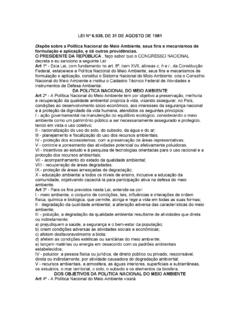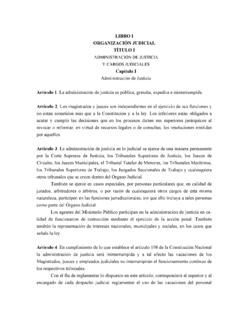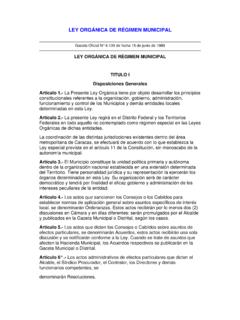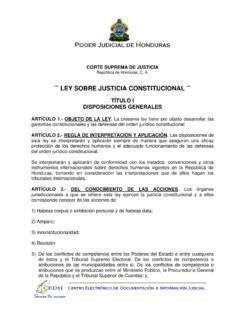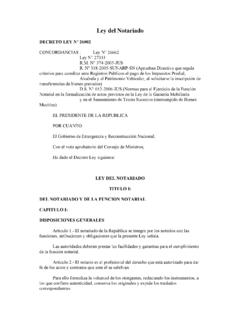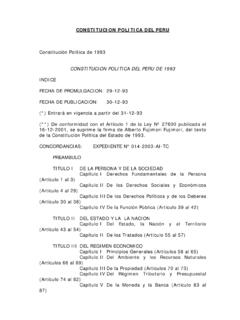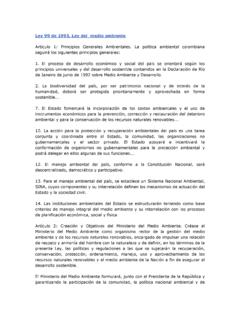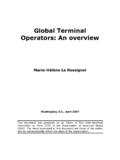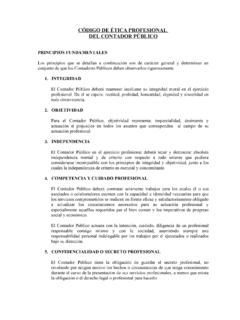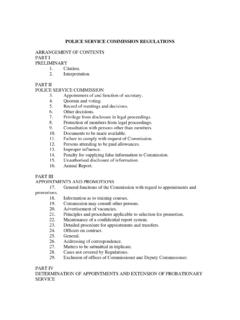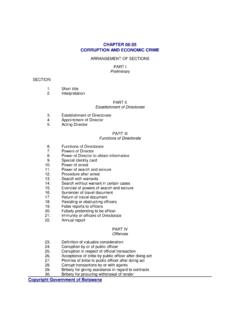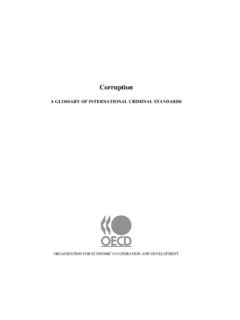Transcription of THE CHAMBERS OF THE DIRECTOR OF PUBLIC …
1 1 THE CHAMBERS OF THE DIRECTOR OF PUBLIC PROSECUTIONS Institution s Objectives, Functions & Structure The Office of the DIRECTOR of PUBLIC Prosecutions (DPP) is a constitutional office which plays a vital role in the administration of justice in criminal causes or matters. The DPP is the sole Authority vested with the power and responsibility to exercise control over the prosecution of all criminal matters except the institution of a Court Martial. Functions of the DPP s CHAMBERS : The functions of the CHAMBERS of the DIRECTOR of PUBLIC Prosecutions are set out under Article 187 of the Constitution of Guyana; these are: 1. To institute and undertake criminal proceedings against any person before a Court of Law, other than a Court Martial, in respect of any offence that contravenes the Laws of Guyana 2.
2 To take over and continue any such criminal proceedings that may have been instituted by any other person or Authority 3. To discontinue at any stage before any judgement is delivered any such criminal proceedings instituted or undertaken by her or any other person or Authority According to the said Article 187, the powers conferred on the DIRECTOR of PUBLIC Prosecutions are vested in her to the exclusion of any other person or authority and the DIRECTOR of PUBLIC Prosecutions shall not be subject to the direction or control of any other person or Authority. In carrying out these functions the major activities of the DIRECTOR of PUBLIC Prosecutions are to give legal advice and to appear in Court to discharge in accordance with the Constitution of Guyana, the obligation to ensure that all criminal matters are dealt with in a fair, impartial and efficient manner.
3 This is in keeping with the CHAMBERS Mission Statement. Pursuant to Act No. 4 of 2010 which amended the Court of Appeal Act, the DPP has now been vested with the authority to appeal against verdicts of acquittal including those as a result of a trial judge upholding a no case submission, that there is a defect in the depositions, the committal of the accused person for trial or the indictment; a decision by the trial judge to exclude material evidence sought to be adduced by the prosecution ; the trial judge s substantial misdirection of the jury in the course of the judge s summation on the law or facts or on a mixed question of law or fact; or a material irregularity in the trial.
4 In carrying out these functions the DPP provides professional advice to and representation for all law enforcement and other agencies in relation to the prosecution of criminal cases 2 depending on the availability of legal staff. In the execution of the above mentioned functions, the major activities of the DPP are: A. To proffer indictments in the criminal sessions in the Demerara, Berbice and Essequibo Jurisdictions; during these criminal sessions, one or more State Counsel would be assigned to prosecute the cases listed to be heard by the sitting trial judges B. To appear in the Appellate Courts, the Full Court for appeals for Summary charges and Courts of Appeals for appeals from all indictable charges C.
5 To appear in the Magistrate s Court for a technically high profile matter and in extreme instances where the Police Prosecutors would request assistance D. To appear in the High Court in Applications for Bail, Habeas Corpus, or Application to Leave the Jurisdiction, and for Extension of Time to keep persons in custody pending police investigations E. To provide the Guyana Police Force (GPF) and other Law Enforcement Agencies such as the Customs Anti Narcotic Unit (CANU) and Guyana Energy Authority (GEA) with legal advice in the prosecution of criminal cases F. To ensure that no citizen is charged unjustly G. To ensure that persons who break the law are charged and prosecuted according to the relevant provisions of the Laws of Guyana There are two types of criminal charges summary charges and indictable charges.
6 Both types of charges are instituted in the Magistrate s Court. All summary charges are heard by a magistrate while some indictable charges are heard by a magistrate. Certain indictable charges, as prescribed by law, must be done before a judge and jury; however, for these, a preliminary inquiry (PI) or a paper committal (PC) must first be done by a magistrate in the Magistrate s Court. After an indictable charge is instituted, if it is being disposed of by the magistrate, the trial is held. If however, the charge has to be heard by a judge and jury, then a preliminary inquiry (PI) or a paper committal (PC) has to be done by the magistrate to determine if an accused person must stand trial for the offence for which he or she is charged.
7 A PI or PC must be conducted for indictable offences such as Murder, Manslaughter, Rape and any Fraud being done in the high court. After the PI or PC is completed, the DPP receives the depositions/PC documents. Upon receipt of the depositions/PC documents, the DPP either proffers the indictments or discontinues the charge depending on the evidence contained in the depositions/PC documents. Where indictments are proffered they will then be presented to the judges in the High Court for hearing at the Criminal Sessions. 3 The lawyers from the CHAMBERS appear for the prosecution in the High Court and in the Appellate Courts and rarely in the magistrate s court in very serious cases.
8 In all the magistrates courts the police appear for the prosecution . Most Fraud charges are indictable charges and the trial for the majority of these charges are done in the magistrate s court. Any fraud charges concerning right to property has to be done in the High Court. Complaints: Prisoners and other parties to a criminal matter would usually complain to the DPP if they are not satisfied with the police investigations. The DPP would then take appropriate action on the prevailing issue. Similarly complaints are received from prisoners who are awaiting their trial in the High Courts in Demerara, Berbice or in Essequibo. Upon receipt of the complaint the DPP will take appropriate action.
9 All complaints received on misconduct by members of the Guyana Police Force are sent to the Commissioner of Police for action to be taken by the Office of Professional Responsibility. Complaints can also be made to the Police Complaints Authority for their action. Legal Structure of The DPP s CHAMBERS No. Designation Amount 1. DIRECTOR of PUBLIC Prosecutions (DPP) 1 2. Deputy DIRECTOR of PUBLIC Prosecutions (DDPP) 1 3. Assistant DIRECTOR of PUBLIC Prosecutions (ADPP) 5 4. Senior State Counsel 6 5. State Counsel 10 6. Police Prosecutors 3 7. Legal Assistants 3 Besides the lawyers who are employed at the CHAMBERS , there are 3 Legal Assistants and 3 Police Prosecutors from the Guyana Police Force.
10 4 Bringing Police Prosecutors under the DPP s CHAMBERS : Generally, it is preferred that prosecution of criminal charges be done by lawyers. The majority of criminal charges are disposed of in the Magistrate s Court and Police Prosecutors appear for the prosecution , thereby resulting in the prosecution of most of the criminal charges being done by Police Prosecutors. All the prosecutors in the Magistrate s Courts are police. In order to improve the quality of prosecutions, it has been decided, as part of the Justice Sector Reform Programme that the Police Prosecutors be assigned full time to the DPP s CHAMBERS .
